- Home
- Andre Gonzalez
The Burden (Insanity Series, Book 2) Page 7
The Burden (Insanity Series, Book 2) Read online
Page 7
“Mr. Batchelor, does this mean that you will pursue the death penalty?”
“Yes, Your Honor, we intend to pursue the death penalty for this case,” Geoff said without hesitation. The words had less of a punch than Jeremy expected, partly because he knew they were coming.
“Very well. Ms. Kennedy, since the prosecution has rejected your offer, would you like to make any changes to your plea?”
“Yes, Your Honor. We will now plead ‘not guilty by reason of insanity’.”
Judge Zamora jotted a note. “Very well,” he said. “Ladies and gentlemen, with this plea please be reminded that it now becomes the prosecution’s burden to prove beyond a reasonable doubt that the defendant was sane during the time of the crime. Mr. Batchelor, do you understand?”
“Yes, Your Honor.”
Judge Zamora flipped through a calendar on his bench. “Let’s aim for July 17 for opening statements. Which means jury selection should begin on the 10th of April. Are there any questions?”
“Your Honor, I would like to request a continuance. We still have hundreds of documents to go through.” Linda spoke confidently, as if she expected the continuance to be granted.
“Ms. Kennedy, I don’t want to push this trial out any further. Are you telling me you won’t be ready in time?”
“Not in time for jury selection in April. We would need all of our research complete to be in any position to discuss jurors.”
Judge Zamora pursed his lips. “Mr. Batchelor, any objection to the continuance?”
“No, Your Honor.”
“Okay then,” the judge said. “We will plan for jury selection to commence on July 17 instead, with the trial beginning on October 23. Please hold to these dates, as there will be no more delays granted. Court is adjourned.”
“We’re going to trial,” Linda whispered to Jeremy before turning to Wilbert.
Jeremy’s gut fluttered in excitement. He would be moving on to the next phase in his experiment.
* * *
December 14, 2016
“There are three possible verdicts now: guilty, not guilty, and not guilty by reason of insanity.” Linda had come to visit Jeremy the next day and fill him in on the next steps. “We can eliminate ‘not guilty’ as a possibility. That would allow you to walk home a free man. ‘Not guilty by reason of insanity’ is what we’re aiming for. This will allow your sentence to be to a mental institution for an amount of time determined by the judge. A ‘guilty’ verdict would have the trial move to a sentencing phase where the jury will decide if you should receive life in prison or lethal injection.
“Our plan is to focus on two things: a lack of premeditation, and a narrative. Premeditation is what throws the insanity defense out the door, but so far there’s no proof to suggest it. As far as a narrative, this is where Wilbert will be helping the most. We’re going to take your interview with Dr. Brown and create a story that highlights a troubled past. We need the jury to think you’ve always been mentally unwell and never received help.”
“But I haven’t always been this way. Isn’t that just as meaningful?”
“I know that. And no. Juries don’t buy that people can randomly snap one day. They want to hear about a buildup to it, and that’s what we’ll give them. We’re working with a jury psychologist who specializes in these kind of things, and he agrees with our approach. We’re going to focus heavily on your great-grandfather and drill that into the jury’s head every chance we can.”
Jeremy flashed back to his notebook. If that notebook were to turn up, his life would be over. But the notebook was surely buried at the bottom of a landfill, after he tossed it in a gas station trash can.
That notebook contained the only evidence of premeditation. He wished he had burned it.
16
Chapter 16
Monday, January 23, 2017
Now that Linda had until July to be fully prepared for the trial, she didn’t want to overlook a single detail. In their war room at the office, on a long white board running the length of the conference room, Linda drew out a timeline of events on the board, to anticipate what the opposition would focus on.
Wilbert said, “If they want to prove premeditation, they’ll need to focus on the months before the shooting. The PIP in January will be key, as well as the job rejection in October. Also, the hiring of Mark Fernandez after Jeremy’s rejection.”
Linda circled each event as Wilbert mentioned it, and took a step back to examine.
“So we’ll need testimony from those close to Jeremy at those times. Based on preliminary interviews, I think his friend at the office, Clark, will give us some good insight into how Jeremy was acting, as well as his professor, Dr. Adrian Siva. What should we do about those events right before the shooting? The firing and the raise.”
“The raise is nothing. I looked into it, and Jeremy was right, quite a few people were not given raises. There is also no documentation that he was warned of a firing. It appears as if Shelly Williams drew up his termination without even a discussion with H.R. Her mind was made up to get rid of Jeremy on March 11. It may sound farfetched, but it appears to be a coincidence.”
“But Geoff is going to make these exact events into Jeremy’s motive,” Linda said.
Wilbert replied, “He has no motive—he’s insane! His illness has always been with him, dormant and waiting. These events merely woke it up and he acted out in rage. Dr. Brown even confirmed this.”
“I don’t think that’s good enough to get him off.”
“Get him off?” Wilbert teased. “On the insanity defense? Linda, our priority is to keep him off death row. Anything better than that is icing on the cake. He’ll end up with our original plea bargain if all goes well in the trial. You don’t actually think he’s going to be sent to a mental institution, do you?”
“Well, yes. There are no signs of premeditation.”
“Linda. We’ve both been in this business a long time. We both know that jurors make decisions based on facts. They’re not going to try to get into the mind of the defendant and create compassion for him. A jury is going to see a man who was rejected for two promotions, placed on disciplinary action, stiffed a raise, and was about to be fired—all by the same woman, who he shot first, by the way, on the day he was to be fired.”
“We have Dr. Brown to testify about his illness.”
“Jurors don’t care about science. DNA evidence is as far as their understanding goes, and that’s not what’s being discussed here. This is a trial where the defendant is guilty of the crime.”
“You’re the one who told me we had a chance, with all the money the family is throwing at the case.” Wilbert’s intensity was starting to wear on Linda. As he was her boss, and the head of the firm, she couldn’t call him out on it. And as she knew from experience, a defense team needed to be united going into a trial. When everyone was just angling for their own agenda, the defendant suffered as a result.
“And we do have a chance, but I’m also a realist. Even with unlimited funds this is still an uphill battle. Only two percent of insanity pleas win. Having money increases those chances to maybe five. I love the confidence, but you need to set your target to something more achievable. Geoff is going to tell a long story about how Jeremy became so fed up with life that he snapped, and took it out on everyone who wronged him. What we should be focused on is creating our own story, of how Jeremy led a normal life like anyone else before caving to the symptoms of his illness. Make the jury and the public relate to him. The more they feel connected to him, the less likely they’ll send him to his death.”
Death penalty cases, Linda knew, had a way of causing their attorneys more stress than normal. They were going to need to take a lot of deep breaths between now and July.
17
Chapter 17
Monday, July 10, 2017
The months since January fell into a routine for Jeremy. Less hearings were scheduled, leaving him in his lonely cell to think about life. He acknowledged his failing mi
nd and requested crossword and Sudoku puzzles to help sharpen his ability to think.
The officers in the jail had grown more lax towards Jeremy. They still hated him, but showing their disgust required too much energy to maintain for over a year. When he had entered jail all those months ago, it was typical for an officer to mutter a hateful message to Jeremy when they dropped off his food. Now, they simply remained silent when dealing with him. We’re practically friends, Jeremy thought and giggled to himself.
Even Linda had remained out of touch, having assured Jeremy she would catch him up on all of their progress when the time came. She had stopped by in June to inform Jeremy that a record nine thousand jury summons had been sent out to Denver area registered voters, the most in American history. Jury selection was the last hurdle to clear before the trial would begin. Jeremy was due in court every day for jury selection, a process they expected to take two to three months. Jeremy thought he might die of boredom at first, but appreciated it after two days in to the process.
Jeremy fell in love with lunch time in the courthouse. He sat in a small holding room near the judge’s chambers, with two officers standing guard outside the door. The room had bare, white walls, a small square table, and a chair bolted into the ground. He only used the room during the court’s lunch recess each day. He was allowed to roam around the room, no smaller than his cell, and enjoy the view from the window that overlooked a green field of tall grass. The jail had granted him one hour of outdoors time each week, but he’d often pass it up as going outside would require him to wear his shackles.
The cafeteria in the courthouse provided his lunch, a major upgrade from the pile of slop he had to force down every day in jail. He was given a turkey and ham sandwich, chips, and a bottle of water each day in court—nothing more, nothing less.
The sandwich filled his mouth with an explosion of flavors more tasty than anything he’d eaten since the spaghetti at his mom’s house the night before the shooting. He savored every bite and treasured the time in the private room as his own. Once lunch was delivered, no one bothered him until it was time for court to resume.
Jury selection dragged from July into early October. The first month of questioning jurors was a learning process for Jeremy. He found the process to be fairly quick paced, several dozens of jurors receiving their dismissal each day. Both the prosecution and defense were allowed ten peremptory challenges, meaning they could choose ten people to dismiss without giving a reason. With a pool of 9,000 jurors, the ten challenges were all used up within the first day, practically meaningless in the grand scheme.
Both attorneys grilled the jurors with questions about their thoughts on guns, the death penalty, mental health, and any potential discrepancies they may have had in the workplace with managers or coworkers. As expected, most people shared their stories of missing out on raises and promotions, and some even offered to discuss why they hated their boss. These people were promptly dismissed.
After July, Jeremy felt like the jurors that came into the courtroom were all the same people on some sort of repetitive loop. Despite being so important, jury selection had to be the most boring aspect of a trial. Many jurors gawked at Jeremy when they entered the courtroom, seeing the mass murderer in the flesh. Most days he zoned out thanks to his pills, staring into space as his lawyers worked to find the best people to spare his life. Linda had requested another continuance in July and was promptly denied the request. October 23 was set in stone for opening statements.
“We’re shooting for a three-to-one ratio of women to men on the jury, and so far we’re on track,” Linda explained to Jeremy one day after court. “Women are less likely to vote in favor of the death penalty compared to men.”
Linda kept a thick folder with lists of juror numbers highlighted either red, green, or yellow. Jeremy assumed this was her way of tracking the jurors and their answers, noting who they would want to select. Every week that passed seemed to add one or two more jurors to the twenty four they were looking to secure for the lengthy trial.
Jeremy returned to his cell every night with a twisting knot in his stomach. I’ve been sitting in the same room with the people who will decide my fate.
He rarely took the time to appreciate how small he was in the universe. The stars had to align perfectly if he were to get the verdict needed to continue his work. Everything had to fall in place from the judge, the attorneys, their staffs, the witnesses, and the jury. A criminal case like his had thousands of moving pieces that he would never even know about, but those pieces all had to fall in place for him to receive an insanity verdict.
18
Chapter 18
Monday, October 9, 2017
By the time October arrived, Linda had achieved a slightly better ratio than she had projected: nineteen of the twenty-four jurors were women. After the boring three months of jury selection, the courtroom once again buzzed with anticipation now that the jury was set.
Jeremy stared across the room at the crowded jury box, where twenty-four strangers would decide his fate. He studied them as they waited for the judge to begin speaking to the jury for their initial instructions. Of the women, half appeared to be over the age of fifty, while the rest were closer to Jeremy’s age, in their late twenties. The five men seated were all middle-aged and had curious looks of anticipation on their faces.
The jury box was divided into three rows of eight. The front row and first half of the middle row were the actual twelve jurors. The second half of the middle row and the entire back row were the alternate jurors. It was common practice for a high-profile case and lengthy trial to have twelve alternates in case issues arose over time.
Some of these jurors look like they could croak any minute! Jeremy thought.
Judge Zamora spoke to the jury. “Thank you, folks, for committing to this trial. As you know, this is a high-profile case with national attention. The first and most important rule to remember is to not discuss the case with anyone, not even your significant others. There will be extensive media coverage of this trial. You are not to watch the news. If you find yourself in a situation where the trial comes up in conversation or on the TV, you must excuse yourself. I can’t emphasize this enough.
“Also be aware that a camera will be in the courtroom, providing a live broadcast. You, the jurors, will not be shown on camera.”
As Judge Zamora continued with his preliminary instructions for the jury, Jeremy looked the jury up and down, studying each of the main twelve. They each wore a name tag with big numbers written in black ink, identifying them by their juror number.
The first row of jurors were eight women. Jeremy studied them one by one, assigning a nickname to each based on a physical attribute.
Chubby, he thought for the woman in the first seat, clearly a regular at the buffet.
Snow White. An elderly woman with snow white hair.
Cakeface. One of the women his age, with a bit too much makeup on.
Broomstick. A younger woman with stiff blond hair.
Betty White. An elderly woman who looked tiny and gentle like the famous actress.
Ms. Serious. An older woman who wore glasses and a stone-faced expression, and glared at Jeremy.
Asian Girl. Another woman his age, with slanted eyes.
Rich Lady. A middle-aged woman with loads of jewelry on her neck, wrists, and fingers.
Jeremy moved his attention to the middle, where the first four seats rounded out the jury of twelve.
Lewis. An older black man with white curly hair, who reminded him of his old friend from the Bears.
Mr. CEO. A handsome middle-age man dressed in a sharp suit.
Lunch Lady. An older black woman who reminded Jeremy of his lunch lady in middle school.
Gamer Dude. A heavier man with scraggly hair and pimples spread across his face.
Each juror hung on to the judge’s every word, except for Ms. Serious in the front row. She kept her head toward the judge, but Jeremy noticed her eyes wander around t
he courtroom before landing on him again.
Jeremy focused his attention on the woman. She stared at him from behind a pair of thin-framed glasses. She maintained a stern countenance, the corners of her mouth furled. He was pretty sure she wanted to jump across the room and strangle him. Her hair was a short, sandy brown with waves of gray.
Is she out to get me?
“Monday, October 23, will be the start of this trial. From that point forward I’ll expect you all to be in your juror’s room promptly at 8 a.m. every day. If you’re running late, please contact the courtroom deputy, whom you’ll meet before leaving today. Now, are there any questions from the jury?”
The jurors looked around at each other and no one spoke up.
“Questions from counsel?”
“No, Your Honor,” Geoff said.
“Alright then, folks. I’ll see you all back here on the 23rd for opening statements. Enjoy your two weeks until then.” He banged his gavel and chatter filled the courtroom.
“Jeremy, please,” a voice whispered from behind. He raised his head but didn’t look back; he knew it was his mom. “Jeremy, we’re coming to see you this week. We finally got permission.” Her voice struck a painful chord in his chest.
When the officer arrived for Jeremy, he stood, turned back, and nodded to his mother before walking out of the room.
He thought about her during the short drive back to the jail. Dark gray clouds had formed in the sky and Jeremy ached for a chance to breathe fresh air as a free man. He hadn’t been outdoors in a long time.
19
Chapter 19
Tuesday, October 10, 2017

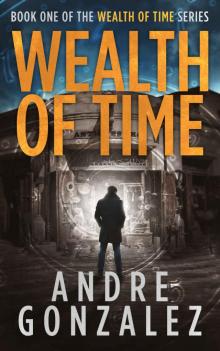 Wealth of Time
Wealth of Time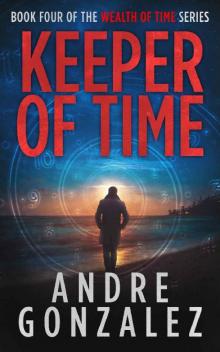 Keeper of Time (Wealth of Time Series, Book 4)
Keeper of Time (Wealth of Time Series, Book 4)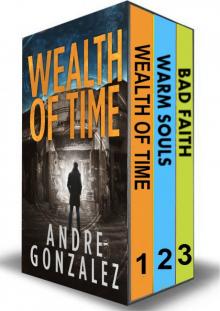 Wealth of Time Series Boxset
Wealth of Time Series Boxset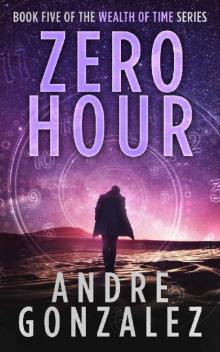 Zero Hour (Wealth of Time Series, Book 5)
Zero Hour (Wealth of Time Series, Book 5)![[Wealth of Time 01.0] Wealth of Time Read online](http://i1.bookreadfree.com/08/wealth_of_time_01_0_wealth_of_time_preview.jpg) [Wealth of Time 01.0] Wealth of Time
[Wealth of Time 01.0] Wealth of Time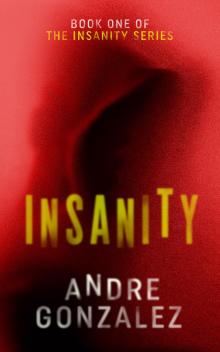 Insanity, #1
Insanity, #1 Snowball
Snowball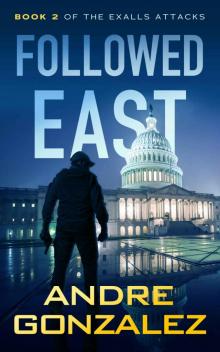 Followed East
Followed East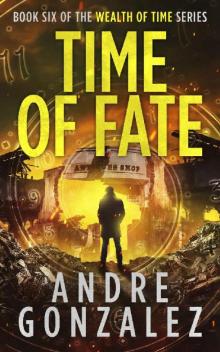 Time of Fate (Wealth of Time Series #6)
Time of Fate (Wealth of Time Series #6)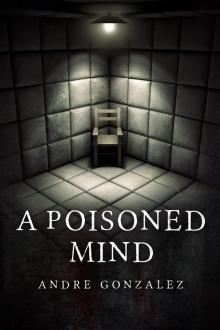 A Poisoned Mind
A Poisoned Mind The Burden
The Burden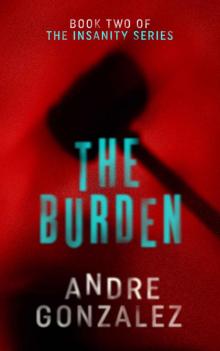 The Burden (Insanity Series, Book 2)
The Burden (Insanity Series, Book 2)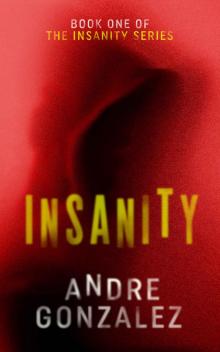 Insanity (Insanity Series, Book 1)
Insanity (Insanity Series, Book 1)